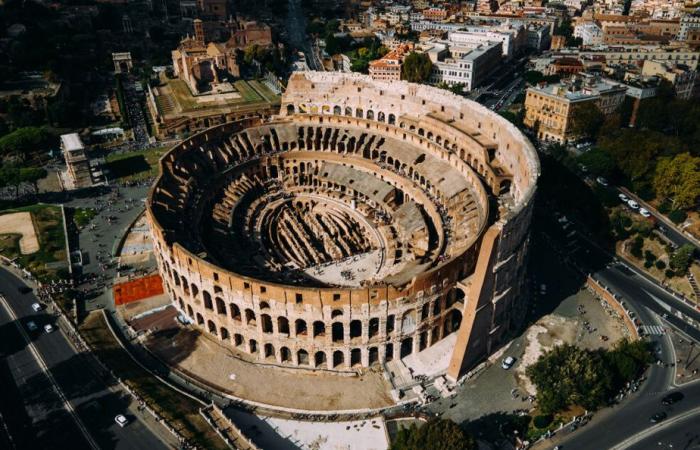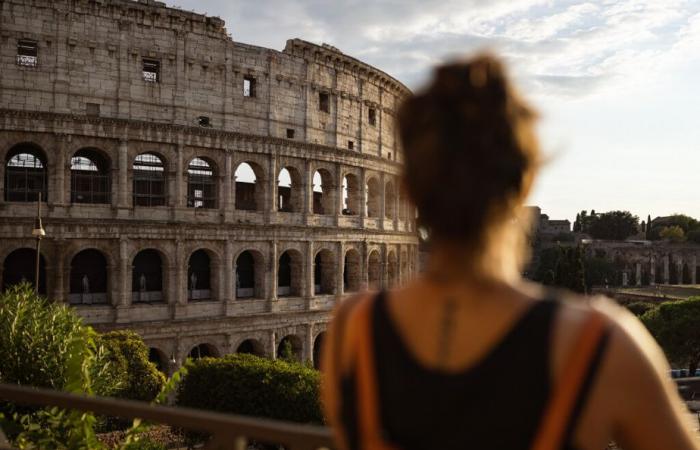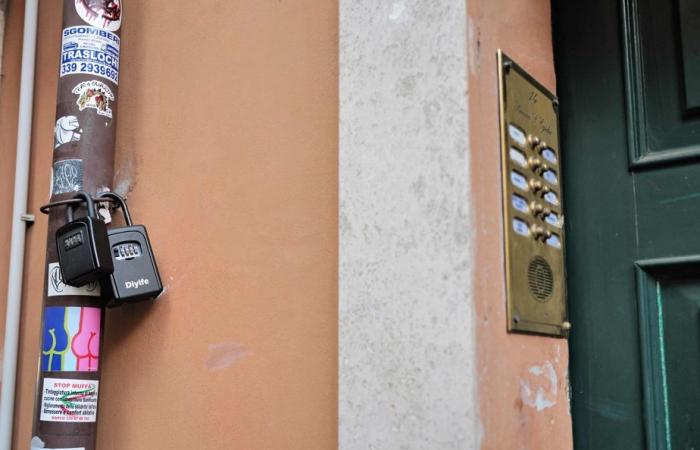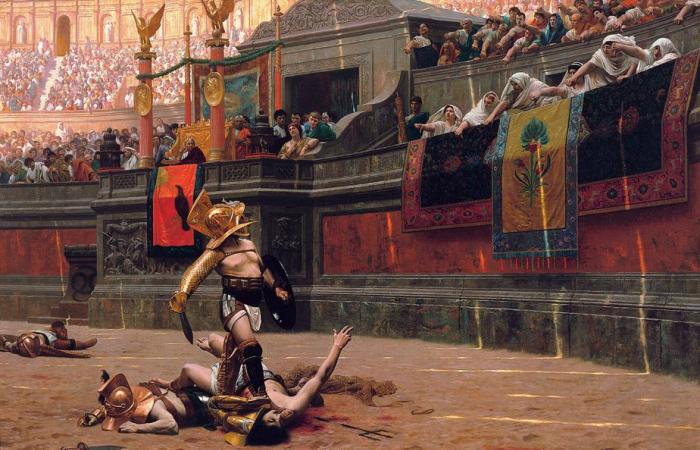It must have been centuries since the Romans were this excited about an event at the Colosseum, and it’s not because of the recent release of the movie sequel Gladiator 2 de Ridley Scott.
Posted at 11:30 a.m.
Elisabetta Povoledo
The New York Times
The Colosseum and Airbnb offer a privileged few access to the most visited site in Italy in order to unleash their “inner gladiator”. Many Romans are furious: they consider that such a project degrades a cultural emblem.
For two nights in May, 32 people will learn gladiator combat in the ancient arena, trained by enthusiasts of Roman history and historical reconstruction.
This project is a partnership between the Colosseum Archaeological Park and Airbnb, which donated $1.5 million to improve a permanent exhibit in the Colosseum. Airbnb says it wants to “support conservation work at the Colosseum to find new ways to inspire and educate visitors about the historical significance of this era.”
But some Romans and cultural experts reacted to this idea with a thumbs down (thumbs down, in Latin) without appeal.
PHOTO GETTY IMAGES
The Romans have an attachment to many monuments and historic buildings in their city. But when we involve the Colosseum, we touch on a particularly sensitive point.
“We refuse to allow the Colosseum to become a theme park,” roars Massimiliano Smeriglio, member of the Rome city council responsible for culture. He plans to meet Airbnb managers soon and wants to change their minds.
“Everyone applauds when a company sponsors a monument or restoration, but there shouldn’t necessarily be a quid pro quo. »
Federico Mollicone, elected from Prime Minister Giorgia Meloni’s Fratelli d’Italia party, rejects these scruples emanating according to him from the “radical chic” caste of Rome, which treats the arena “as something sacred”. But the Colosseum was a place of brutal entertainment, he said.
Gladiator games for tourists are already the norm in other ancient arenas, such as Nîmes, France, he notes: “There’s nothing wrong with that. » His center-right government adopted a law this year promoting historical reenactments.
Bad choice of partner
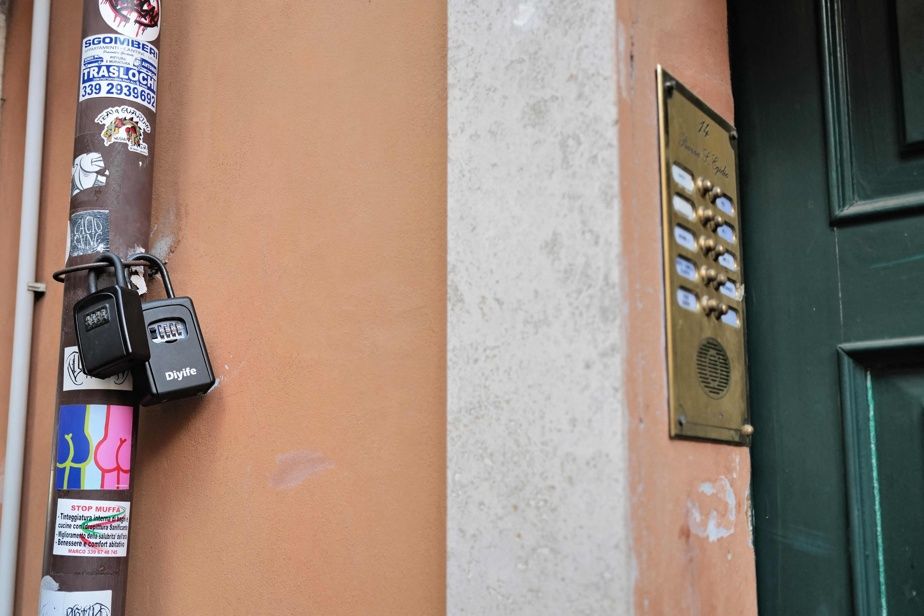
PHOTO ANDREAS SOLARO, AGENCE FRANCE-PRESSE ARCHIVES
Key boxes hanging outside residential buildings in Rome. Omnipresent in Rome, these key boxes show where accommodation has been converted to short-term rental.
The presence of Airbnb in the project was also criticized. Rome, like so many cities, is struggling to find the balance between the rental needs of the population and the conversion of accommodation to Airbnb, stimulated by the post-pandemic tourist boom.
Last summer, demonstrations took place in Barcelona, Athens and several European cities to denounce overtourism. In Rome, the key boxes of some Airbnbs have been sabotaged, but soon there will be no more, anyway. Last month, the Interior Ministry decreed that guests must be identified in person at check-in; therefore, the key boxes will not be compliant.
The effect of short-term rentals in Rome is “huge,” says Fabrizio Nizi, a spokesperson for Spin Time Labs, a tenants’ association that advocates for affordable housing. He cites government statistics showing that the number of apartments converted to short-term rentals has been skyrocketing for several years.
Additionally, Airbnb and the Colosseum have chosen 2025, the year of the Catholic Jubilee (an event that has taken place every 25 years since 1300) which will attract thousands of pilgrims to Rome, Mr. Nizi says.
At the Coliseum, a national institution, “there should have been greater sensitivity” to the social context, “because Airbnb opened the way to the destruction of our communities,” laments Viviana Piccirilli Di Capua, coordinator of an association from residents of downtown Rome, where she said many tenants complain that landlords don’t renew leases.
The Romans are quick to denounce the dysfunctions of their city, whether it is uncollected garbage or potholes. But when you involve the Colosseum, you hit a nerve.
We saw it shortly after Elon Musk challenged Mark Zuckerberg on X, inviting him to fight in a cage. When rumors spread that the fight could take place at the Colosseum, there was an outcry in Rome.
This emblematic monument “always arouses strong emotions and debates,” lamented an Airbnb spokesperson.
Massimiliano Tonelli, director of an art magazine, made no secret of his disdain for the gladiatorial tourist project; he titled his editorial “Kitsch Emergency at the Coliseum”.
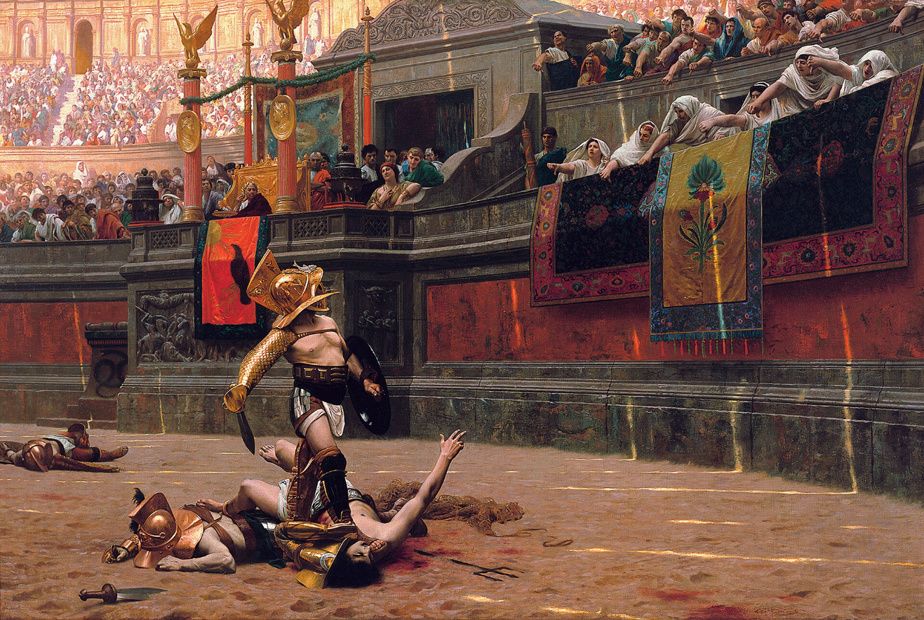
PHOTO FROM WIKIPEDIA
This 1904 painting titled Thumbs down (thumb down), by Frenchman Jean-Léon Gérôme, summarizes the popular conception of gladiator fights at the Colosseum. However, these representations are riddled with errors and myths, explains Dario Battaglia, founder of Ars Dimicandi, which specializes in historical reconstructions.
Ars Dimicandi and Gruppo Storico Romano, the two historical re-enactment associations involved in the project, are not qualified, he added in an interview. An unfounded reproach, respond the two groups and those responsible for the Coliseum.
According to Dario Battaglia, founder of Ars Dimicandi, films like Gladiator and all the historical errors that they carry are already a good reason to encourage initiatives like that of the Colosseum.
Some myths die hard, he says. Thus, it is false to say that all gladiator clashes were fights to the death. Furthermore, many of the fighters were volunteers, including slaves hoping to improve their lot.
“The Colosseum wants to change things and is calling on the world’s greatest experts to clarify things,” because the profession of gladiator “is completely misunderstood,” says Mr. Battaglia. “The public doesn’t know much. »
The Airbnb event will therefore be an “immersive experience”, less focused on entertainment than on history, in order to show “for the first time what really happened”, he promises.
This article was published in the New York Times.
View the original version (in English; subscription required)

